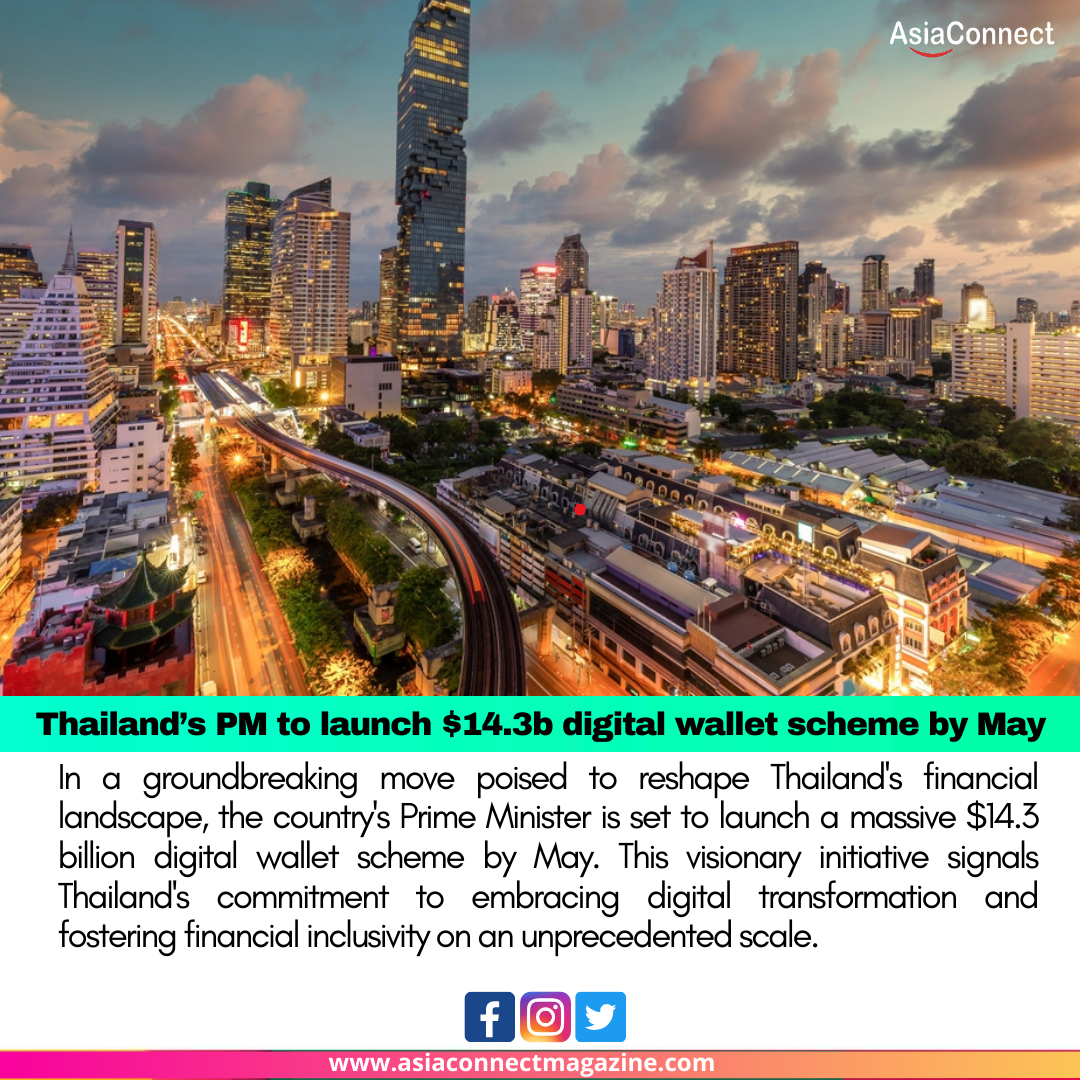In a groundbreaking move poised to reshape Thailand’s financial landscape, the country’s Prime Minister is set to launch a massive $14.3 billion digital wallet scheme by May. This visionary initiative signals Thailand’s commitment to embracing digital transformation and fostering financial inclusivity on an unprecedented scale.
The digital wallet scheme, aptly described as a financial revolution, is designed to provide citizens with a seamless and secure platform for conducting a myriad of transactions, ranging from everyday purchases to more complex financial activities. With the goal of creating a cashless society and leapfrogging into the digital age, the Thai government aims to empower its citizens and bolster economic growth through this ambitious endeavor.
At the heart of this digital wallet initiative is the Prime Minister’s vision to bridge the gap between traditional banking and the unbanked or underbanked population. By providing a user-friendly digital platform, the government aims to bring financial services to millions who have been excluded from the formal banking sector, thereby promoting financial inclusion and reducing economic disparities.
The $14.3 billion earmarked for this project underscores the scale of the government’s commitment to its successful implementation. The substantial investment is expected to cover infrastructure development, cybersecurity measures, and educational campaigns to familiarize citizens with the benefits and functionalities of the digital wallet system.
The digital wallet scheme is anticipated to offer a wide array of features, including peer-to-peer transactions, bill payments, and even integration with public services. This multifaceted approach not only simplifies financial transactions but also positions the digital wallet as a comprehensive tool for various aspects of daily life, aligning with the government’s broader agenda of fostering a digitally literate and engaged citizenry.
The May launch date adds a sense of urgency to this monumental initiative, signaling the government’s commitment to swift and effective implementation. The timeline suggests that extensive groundwork has been laid, encompassing regulatory frameworks, technological infrastructure, and strategic partnerships with financial institutions and tech companies to ensure the project’s success from day one.
The digital wallet scheme also holds the potential to revolutionize the business landscape in Thailand. With more consumers adopting digital payment methods, businesses, especially small and medium enterprises (SMEs), are likely to witness increased efficiency and reduced operational costs. The ease of digital transactions can catalyze economic growth, driving innovation and entrepreneurship in the country.
However, with such transformative initiatives come challenges, including cybersecurity concerns and the need for robust data protection measures. The Thai government is expected to address these issues comprehensively, leveraging cutting-edge technologies and global best practices to safeguard user information and financial transactions.
As the launch date approaches, anticipation is building not only within Thailand but also among global observers keen to witness the outcomes of this bold experiment in financial innovation. The success of Thailand’s $14.3 billion digital wallet scheme could potentially serve as a model for other nations grappling with similar challenges and seeking to harness the power of digital technology for economic advancement.
In summary, Thailand’s Prime Minister’s announcement to launch a $14.3 billion digital wallet scheme by May represents a visionary leap into the future of finance. This audacious initiative has the potential to redefine the country’s economic landscape, empower citizens, and position Thailand as a leader in the global digital economy. The eyes of the world are now on Thailand, awaiting the unveiling of this transformative digital financial ecosystem.





